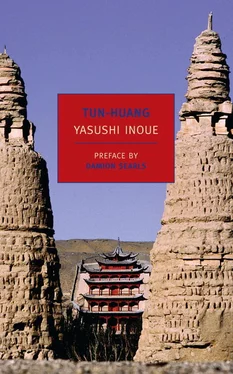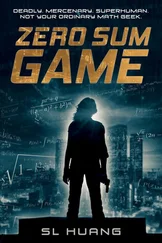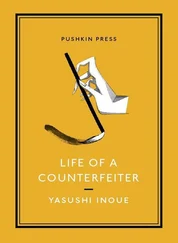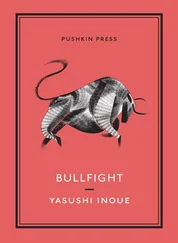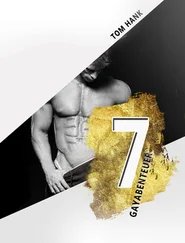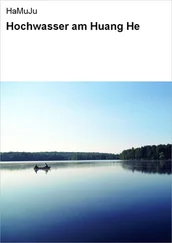At the start of his Frontier Security Proposal, Ho Liang had listed the previously suggested countermeasures against the Hsi-hsia, criticized their shortcomings harshly, and rejected them all as being impracticable.
These countermeasures had been first to abandon Lingwu, second to attack Hsi-hsia, and third to engage in guerrilla warfare. However, if Ling-wu were abandoned, Hsi-hsia would increase her territory and perhaps unite with other western tribes. In addition, the horses bred in the Wu-liang territory would no longer be available to China. An attack on the enemy would present many difficulties; there was a shortage of frontier troops, and supplies were lacking. If small units were sent out, their supply route could easily be cut off by the enemy. If large armies were dispatched, the civilian population would have to shoulder the terrible burden of supporting the troops. If guerrilla soldiers were used, there might be hope for eventual peace, but on the other hand, Hsi-hsia, with its insatiable thirst for power, might subjugate a number of small tribes scattered about Wu-liang and so become a great menace to the future of China. Actually, Sung China would be falling into Hsi-hsia’s trap if it were to engage in guerrilla fighting.
At the end of the report, Ho Liang presented the following specific plans for dealing with the current situation: “Build a fort in the fertile plains near an area where Hsi-hsia might establish a front-line base during its western invasion. Lie in wait for their army, and then attack. Until now,” he wrote, “we have not been able to win in battle with the Hsi-hsia because we have not had the chance to fight with its main army, but have been forced into the desert in pursuit, needlessly dispersing our own troops. If the enemy were to challenge us to battle, annihilation would not be difficult. If Hsi-hsia does not invade, build another fort, and use one as a walled town and the other as a garrison. To maintain a single fort would be prohibitively expensive, but with two forts, we could use the destitute natives in the area to make the outpost self-sustaining. Then a competent commander could be selected to oversee defense operations, and by treating the natives well, we could win them over.” This, then, had been Ho Liang’s final plan thirty years before.
Hsing-te began, “The rulers at the time did not listen to Ho Liang, and chose guerrilla warfare. Because of their stupidity the frontier problem still remains unsolved. In reviewing the situation, I see regretfully that events have turned out just as Ho Liang predicted.” As he spoke in support of Ho Liang’s proposal, Hsing-te noted that his voice wavered with emotion. He heard chairs being knocked over, desks being pounded and angry, abusive voices seething around him, but he felt compelled to finish what he had started to say.
“At the moment Hsi-hsia has conquered all the neighboring barbarians, is gaining strength, and is on the verge of becoming a great threat to the future of China. For this reason China has been forced to keep a huge army of eight hundred thousand troops in readiness, and their maintenance has become an enormous expense. The source of military mounts is also in enemy hands, and there is no way for us even to replenish our present supply.”
Suddenly and violently, the curtains in front of the emperor’s dais were flung open. The next moment many men rushed toward Hsing-te. He tried to rise from his chair, but for some inexplicable reason his legs felt paralyzed. He could not move. Then he fell forward.
Just then Hsing-te awoke from his dream to find that he had fallen face down on the ground. He hurriedly picked himself up, then looked around. The glaring sun beat down upon an almost empty courtyard. An official was watching him from one corner. Hsing-te brushed the dust from his hands and straightened his clothing. The inner courtyard, which had been brimming over with candidates until just a short while before, was now completely empty.
“What happened to the examination?” Hsing-te asked as if murmuring to himself. The man merely frowned at him contemptuously and did not bother to reply. Hsing-te realized then that he had lost his chance to take the crucial examination by falling asleep. His name must have been called, but he had been too soundly asleep to hear.
He walked to the gate and out into the quiet, unpeopled streets of the government district. He roamed from street to street as if in a trance. The examination at the palace… the banquet with high officials after passing it … the glory of wearing the white robes of high officialdom … being called Your Excellency … all, all this had been reduced to the ashes of a dream.
Unexpectedly, a four-line poem by Meng Chiao drifted into his mind.
Elated by the spring breeze
My horse quickens its pace.
In but one short day
Do I view all the peonies of Ch’ang-an.
Meng Chiao had composed this in celebration of the official notice that he had passed the Palace Examination at the age of fifty.
For Hsing-te there would be no peonies. Only the relentless summer sun enveloped him as he stood there crushed with despair. He would have to wait another three years before the next examination would be held. Hsing-te walked on and on. Only in walking could he dissipate his emotion. Before he was aware of it, he had entered the marketplace outside the walled city. As dusk approached, shabbily dressed men and women thronged the narrow road. Food shops lined both sides of the street. Shops selling boiled or fried chicken and duck stood in a row. The odors of burnt oil, sweat, and dust intermingled, and the air was heavy with strange smells. Smoked lamb and pork hung from the eaves of some shops. Hsing-te felt hungry. He had not eaten anything since breakfast.
After crossing several roads he came upon a crowd of people. The narrow lane was full to begin with, but here it was completely blocked. He peered over their shoulders and looked beyond.
He caught a glimpse of the bare legs of a woman lying on a thick board placed on a wooden box. Hsing-te pushed his way forward through the crowd. Looking over their shoulders, he could see the rest of the woman’s body. She was completely naked. At a glance Hsing-te could tell that she was not Chinese. Her skin was not very fair, but she possessed a certain voluptuousness which he had never seen before. In her face he could detect high cheekbones, a pointed chin, and rather deep-set, dark eyes.
He pushed further forward. Standing beside the woman was a coarse-looking, half-naked man wielding a large knife and glaring savagely at the spectators.
“Come now, which part do you want? Sale! Sale!” So saying, he leered at the crowd. Only then did people stir, but they could not take their eyes off this strange scene.
“What’s come over you? I have never seen such a spineless bunch! Isn’t there anyone with enough guts to buy this?”
The man shouted again, but no one answered. Just then Hsing-te stepped forward from the crowd and asked, “Tell me, what happened to this woman?” He was filled with curiosity and the words came out despite himself.
The knife-wielding barbarian stared at Hsing-te and replied, “This woman is from Hsi-hsia. After sleeping with a man, she tried to kill his wife — the whore! I’m going to sell her piecemeal. If you like, I’ll give you any part — ears, nose, breasts, thighs — any part you want. The price is the same as pork.” He was not Chinese either. His eyes had a bluish tinge, and the hair on his chest shone gold. His tanned, fleshy shoulders were tattooed with strange, grotesque symbols.
“Has the woman agreed to this butchering?” In response to Hsing-te’s question, the woman unexpectedly spoke up.
“Yes, I have agreed.” Her words were rough, but her voice was high-pitched and penetrating. There was momentary confusion among the crowd when she spoke. Hsing-te couldn’t tell whether she had resigned herself to her fate or was just being contrary.
Читать дальше
